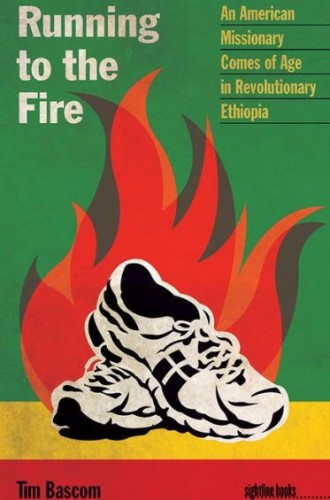Running to the Fire, by Tim Bascom
Like Tim Bascom, I have been both a missionary and a skeptic. I have squirmed uncomfortably in the presence of fellow missionaries’ unflappable positivity and their self-assurance in the rightness of their mission. I have regarded their confidence with both dread and envy: granting the dangers of hubris, it must be wonderful not to be plagued by doubt but to be absolutely persuaded that God smiles on your efforts.
Bascom’s memoir, Running to the Fire, chronicles his Kansan family’s return to Ethiopia just as Colonel Mengistu’s Red Terror, and his own teenage years, were heating up. Bascom’s parents were medical missionaries, and he spent his early childhood in the country. As a teen and as an adult reflecting on his teens, Bascom, who now directs the creative writing program at Waldorf College in Iowa, has harbored both uncertainty regarding his faith and a thirst for excitement, even danger.
Despite the great material provided by living through a revolution with a teenager’s sensibility, and the tension between the religious faith of his parents and the ideas of the revolutionaries, Running to the Fire fails to sustain a suspenseful narrative or to open the author’s memories to larger and more universal themes—the essential challenge for every writer of memoir. It has a plodding feel; the accumulation of detail supplants any attempt at plot.





